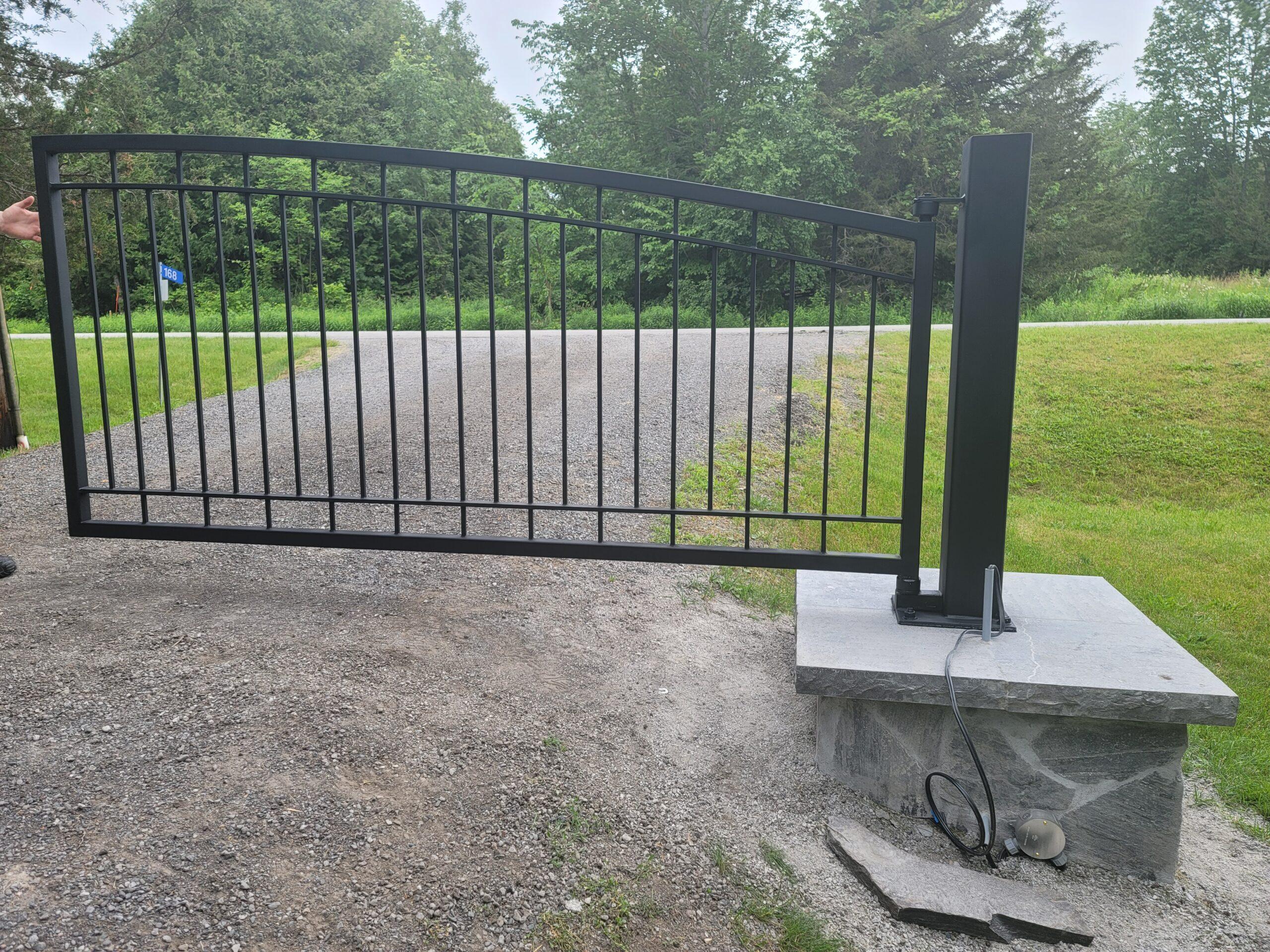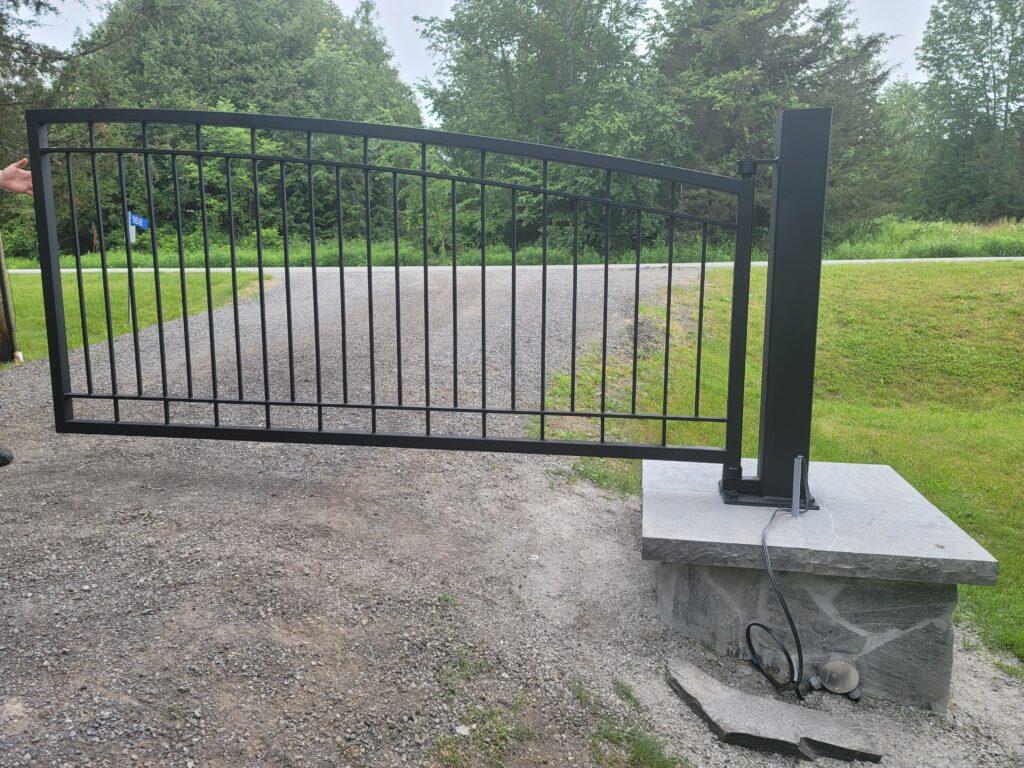Last Updated on September 15, 2025 by chanuka chanuka.23e2
Published: August 15, 2025

An automated gate system is only as reliable as the opener powering it. The wrong gate opener can lead to sluggish performance, frequent breakdowns, and costly repairs—especially in Canada’s tough seasonal climate.
At Art Metal, we help homeowners and businesses select gate automation solutions that match the weight, material, and usage needs of their gates. Here’s what you need to know to choose the right gate opener for long-term performance.
Why Gate Weight and Material Matter
A gate opener isn’t one-size-fits-all. The motor’s capacity must match both how heavy the gate is and how the material behaves over time. Choosing an underpowered opener can strain the motor, while an oversized unit may waste energy and cost more than necessary.
Step 1: Determine Your Gate’s Weight
The weight of your gate is influenced by size, frame thickness, and material density.
| Material | Typical Weight Impact |
| Aluminum | Lightweight, ideal for residential swing or slide gates. |
| Steel | Heavy, durable, requires stronger motor torque. |
| Wrought Iron | Very heavy, especially with decorative elements. |
| Wood | Weight varies with species; also affected by moisture absorption over time. |
Tip: Art Metal can help you calculate exact weight during installation or retrofit—critical for matching the right motor power.
Step 2: Match Opener Type to Gate Style and Weight
Swing Gates
- Lightweight (under 300 lbs per leaf): Low- to medium-duty swing gate openers are sufficient.
Medium (300–600 lbs): Mid-duty openers with higher torque are recommended. - Heavy (600+ lbs): Heavy-duty hydraulic or electromechanical openers with reinforced arms.
Sliding Gates
- Lightweight Aluminum: Low-power gear-driven openers.
- Steel or Wrought Iron: High-torque sliding gate operators with robust chains or racks.
- Very Heavy Industrial Gates: Commercial-grade units with continuous-duty motors.
Step 3: Consider Material-Specific Factors
- Aluminum: Low friction makes it easier to automate; opener can be smaller.
- Steel: Requires more torque—especially in windy areas where surface area creates resistance.
- Wrought Iron: Often ornate and very heavy; prioritize motors with high weight capacity and slow start/stop features to prevent stress on hinges.
- Wood: Prone to swelling with humidity—choose openers with adjustable force settings to accommodate seasonal weight changes.
Step 4: Factor in Usage Frequency
A gate at a busy commercial property will require a continuous-duty motor, while a residential gate might only need intermittent-duty operation. Material and weight play into this—heavier gates operated frequently need the most durable motors.
Step 5: Climate Considerations
Toronto’s winters demand openers with:
- Cold-weather lubrication
- Sealed electronics to prevent moisture ingress
- Battery backup systems for power outages
Art Metal installs motors specifically rated for Canadian climates, ensuring smooth operation year-round.
Recommended Motor Power by Gate Weight
| Gate Weight | Suggested Motor Power | Best For |
| Up to 300 lbs | 12–24V DC Light Duty | Residential aluminum or light steel gates |
| 300–600 lbs | 24V DC Mid-Duty | Heavier residential or light commercial gates |
| 600–1,200 lbs | 120V AC / Hydraulic | Large wrought iron, solid steel, or industrial gates |
| 1,200+ lbs | High-Torque Hydraulic | Extra-large commercial/industrial gates |
Why Work With Art Metal
Choosing a gate opener is about more than just specs—it’s about ensuring a smooth, safe, and reliable experience for years to come. Art Metal provides:
- Accurate weight and force calculations
- Climate-appropriate motor options
- Expert installation and calibration
- Ongoing maintenance and support
Contact Art Metal to get a custom recommendation for your gate’s weight, material, and usage needs—and enjoy the perfect balance of power, efficiency, and durability.

 Chat
Chat 








